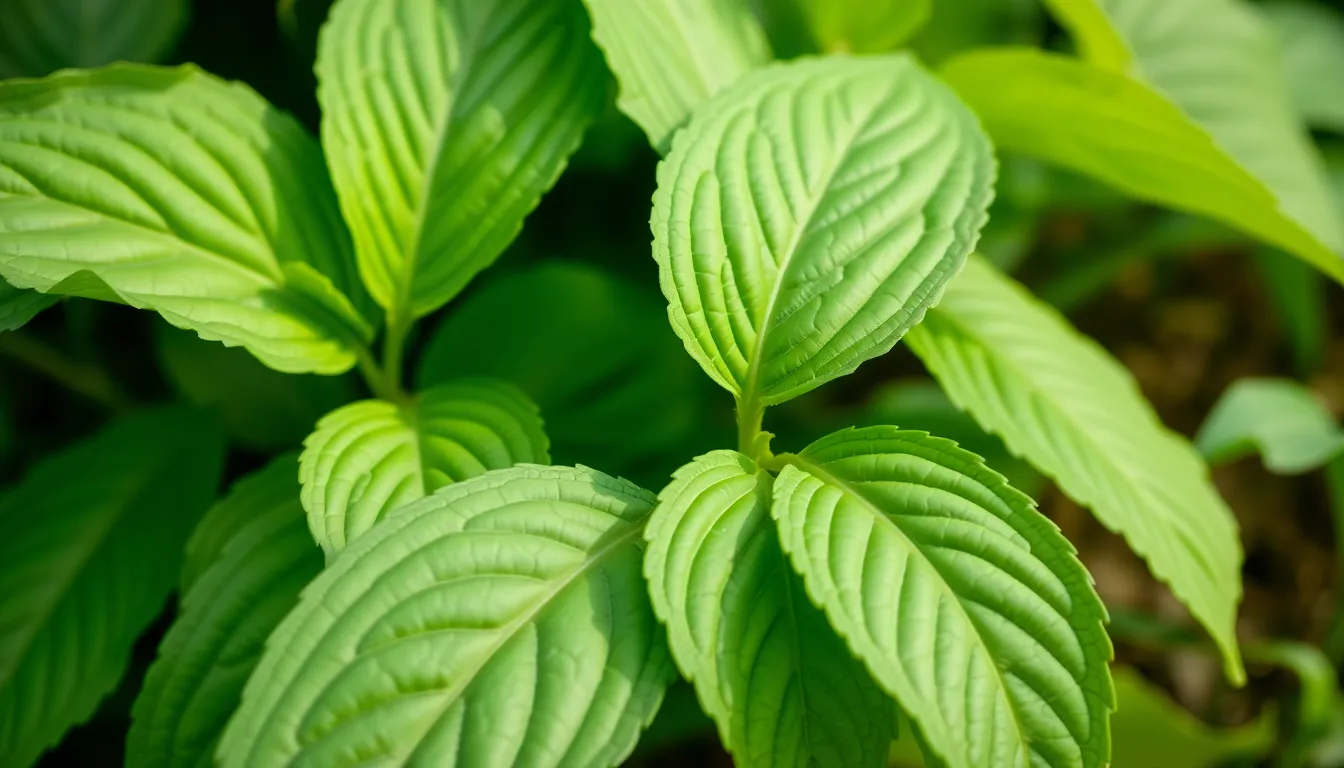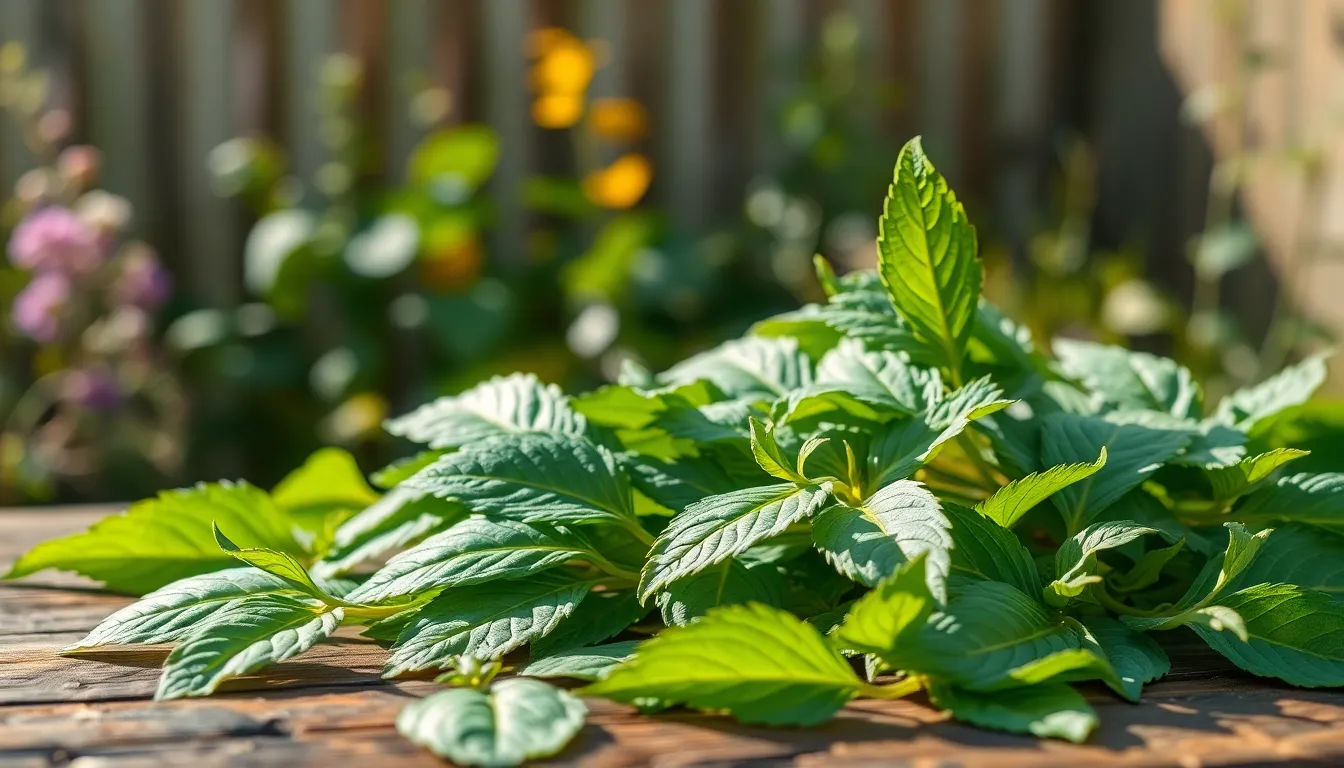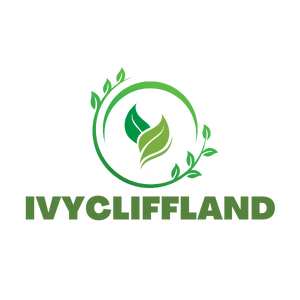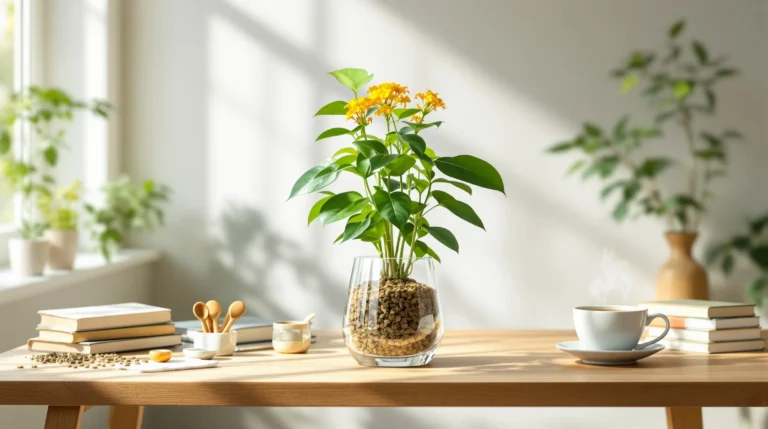
Medicinal Plantain Plant: Unlock its Powerful Healing Benefits Today
In the world of natural remedies, the medicinal plantain plant stands out like a superhero in a field of ordinary flowers. Known for its impressive healing properties, this unassuming green marvel is more than just a weed in your backyard. With a rich history of use in traditional medicine, it’s time to give plantain the spotlight it deserves, especially when it can help with everything from pesky bug bites to soothing sore throats.
Imagine having a trusty sidekick that not only fights off inflammation but also boosts your immune system. The medicinal plantain plant is just that—an herbal powerhouse waiting to be unleashed. So buckle up and get ready to explore the wonders of this remarkable plant. Who knew that a simple leaf could pack such a punch?
Medicinal Plantain Plant
Medicinal plantain, known scientifically as Plantago major, serves as a versatile herbal remedy. This perennial plant thrives in diverse environments, including gardens and roadsides. Traditionally, it has gained recognition for its valuable therapeutic properties.
Leaves from medicinal plantain possess a high concentration of antioxidant compounds that help reduce inflammation. In addition to combating inflammation, they support wound healing and skin regeneration. Studies demonstrate its effectiveness against insect bites, promoting faster recovery and pain relief.
The plant’s ability to soothe respiratory conditions stands out as another significant benefit. When brewed into teas or infused into syrups, its leaves alleviate coughs and ease sore throats. Furthermore, medicinal plantain enhances immune function, offering protection against various infections.
Preparations using the leaves include poultices and tinctures, which concentrate the active compounds. Poultices applied directly to the skin help with cuts and bruises, while tinctures allow for easy ingestion of the medicinal properties.
Culturally, various populations have relied on the use of medicinal plantain for centuries. Indigenous practices often highlight its role in folk medicine, showcasing its enduring value across generations. Today, interest in herbal healing continues to grow, leading more individuals to explore medicinal plantain’s potential benefits.
Research consistently supports the traditional uses of this plant, reinforcing its significance in modern herbalism. Through careful study, the medicinal plantain plant proves itself not just as a natural remedy, but also as an essential component of holistic health practices.
Historical Uses of Medicinal Plantain Plant

Medicinal plantain has a rich history rooted in traditional medicine. Practitioners of old used it extensively for its numerous healing benefits.
Traditional Medicine Practices
Traditional medicine practices incorporated medicinal plantain for treating various ailments. Herbalists utilized the leaves to create poultices that alleviated pain and promoted wound healing. Additionally, teas made from its leaves soothed respiratory issues, offering relief from coughs and sore throats. Ancient cultures recognized its ability to reduce inflammation and support the immune system, making it a staple in natural remedies. Many indigenous communities relied on this versatile plant to treat insect bites and skin irritations, underscoring its efficacy in herbal treatment.
Cultural Significance
Cultural significance surrounds medicinal plantain, showcasing its enduring legacy. Many indigenous traditions celebrate the plant’s use in rituals and healing ceremonies, highlighting its link to nature and well-being. Across various cultures, knowledge of medicinal plantain has been passed down through generations, often through oral traditions. The plant’s esteemed place in herbalism reflects a broader appreciation of indigenous knowledge systems that value natural remedies. Today, as modern herbalism gains traction, its historical use reinforces the ongoing relevance of medicinal plantain in holistic health practices.
Health Benefits of Medicinal Plantain Plant
Medicinal plantain offers numerous health benefits, showcasing its role as a versatile natural remedy. Its uses span from anti-inflammatory effects to digestive support.
Anti-Inflammatory Properties
Anti-inflammatory properties characterize medicinal plantain. This plant contains compounds like iridoids that effectively reduce inflammation. Evidence shows that applying its leaves as poultices alleviates pain and swelling from insect bites and minor injuries. Additionally, it supports overall immune function, allowing the body to combat inflammation more effectively. Traditional practitioners frequently utilized these leaves in treatments for arthritis and muscle pain, exhibiting their long-standing reputation.
Antioxidant Effects
Antioxidant effects of medicinal plantain also shine through its rich composition. High levels of flavonoids and phenolic acids contribute to neutralizing free radicals in the body. Research indicates that these antioxidants help reduce oxidative stress, lowering the risk of chronic diseases. Furthermore, incorporating medicinal plantain into diets or teas may bolster the body’s defenses against environmental toxins. Numerous cultures have historically recognized and harnessed these protective properties in herbal medicine.
Digestive Health Support
Digestive health support emerges as another benefit of medicinal plantain. The plant contains soluble fiber, which promotes healthy digestion and regular bowel movements. Studies reveal that its soothing properties may alleviate symptoms of gastrointestinal distress, such as bloating and gas. Many herbalists recommend teas made from its leaves for soothing stomach discomfort. Utilizing this plant in holistic approaches ensures a natural method for maintaining gastric health.
How to Use Medicinal Plantain Plant
Medicinal plantain provides various preparation methods and dosage recommendations for optimal benefits. Utilizing these effectively enhances its healing properties.
Preparation Methods
Infusions represent one common preparation method for medicinal plantain. Steeping the fresh or dried leaves in hot water creates a soothing tea that supports respiratory health. Poultices offer another approach; by crushing fresh leaves, one can apply them directly to insect bites or wounds for quick relief. Tinctures, made by soaking leaves in alcohol, concentrate beneficial compounds for internal or external use. Additionally, syrups prepared from leaves can alleviate sore throat symptoms, enhancing flavor and effectiveness. Each method capitalizes on the plant’s natural healing attributes.
Dosage Recommendations
For adults, a typical dosage ranges from 1 to 3 teaspoons of dried leaves steeped in hot water for tea, taken 2 to 3 times daily. When using tinctures, 10 to 20 drops suffice, taken up to three times a day. Poultices require applying crushed leaves as needed for direct treatment. It’s advantageous to monitor individual responses and adjust dosages accordingly. Consulting with a healthcare provider ensures proper use, especially in the context of existing health conditions or medications.
Conclusion
Medicinal plantain stands out as a powerful ally in natural healing. Its diverse applications and rich history make it a valuable resource for those seeking alternative remedies. From soothing respiratory issues to promoting wound healing, this plant’s versatility is truly impressive.
As interest in herbal medicine grows, medicinal plantain’s relevance continues to shine. With its proven benefits and ease of use, it’s worth exploring how this remarkable plant can enhance overall well-being. Embracing the wisdom of traditional practices can lead to a deeper appreciation for the healing potential found in nature.



